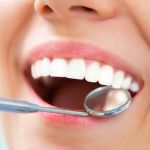How to Manage Sleep Apnea with a Dentist's Help
- 1. Understanding Sleep Apnea and Its Effects
- 2. How Dentists Help Manage Sleep Apnea
- 3. Benefits of Dental Treatment for Sleep Apnea
- 4. Real-Life Experiences with Dental Sleep Apnea Treatment
- 5. How to Get Started with Sleep Apnea Treatment
1. Understanding Sleep Apnea and Its Effects
Sleep apnea is a serious sleep disorder where a person's breathing is interrupted during sleep. These interruptions can lead to poor-quality sleep, fatigue, and other health complications. The most common type, obstructive sleep apnea (OSA), occurs when the muscles at the back of the throat relax too much during sleep, causing a temporary blockage of the airway.
While sleep apnea is often managed with CPAP machines, many people are seeking alternative solutions. One such option is consulting a dentist, who can help with oral appliances designed to alleviate the symptoms of sleep apnea and improve overall quality of sleep.
2. How Dentists Help Manage Sleep Apnea
Dentists specializing in sleep medicine can offer a variety of solutions for managing sleep apnea. These treatments typically focus on improving airway alignment and reducing the frequency of breathing interruptions during sleep.
- Oral Appliances: Dentists often recommend custom-made oral appliances that reposition the lower jaw and tongue to keep the airway open. These devices are comfortable and non-invasive compared to CPAP machines.
- Dental Monitoring: Dentists also provide ongoing monitoring of the device’s effectiveness, adjusting it as necessary to ensure optimal results for the patient.
- Collaboration with Other Healthcare Providers: Many dentists work alongside sleep specialists and doctors to create a comprehensive treatment plan that addresses all aspects of the patient's sleep health.
3. Benefits of Dental Treatment for Sleep Apnea
Dental treatments for sleep apnea offer a number of benefits, especially for individuals who have difficulty tolerating CPAP therapy or prefer a less invasive approach:
- Improved Sleep Quality: By keeping the airway open, dental devices can significantly reduce snoring and interruptions in breathing, leading to deeper, more restful sleep.
- Increased Comfort: Dental appliances are generally more comfortable than CPAP machines, making them easier to use consistently.
- Portability: These devices are small, lightweight, and easy to travel with, unlike bulky CPAP machines.
For many people, dental treatment for sleep apnea is a practical and effective solution that improves their quality of life without the discomfort of traditional treatments.
4. Real-Life Experiences with Dental Sleep Apnea Treatment
Many individuals have found significant relief from sleep apnea symptoms through dental treatment. Here are a few real-life experiences:
“I struggled with CPAP therapy for years, but my dentist recommended an oral appliance. It’s been a game-changer! I sleep more soundly now, and I no longer wake up with a dry mouth or feel fatigued during the day.” – Sarah T., New York
“After trying multiple treatments, including CPAP, I finally found success with a dental appliance. It’s small, comfortable, and easy to use. I’m so grateful to my dentist for introducing me to this option.” – John M., California
These success stories show just how transformative dental treatments can be for those suffering from sleep apnea.
5. How to Get Started with Sleep Apnea Treatment
If you are considering dental treatment for sleep apnea, the first step is to consult with a dentist who specializes in sleep disorders. They will evaluate your symptoms, discuss treatment options, and determine if an oral appliance is the right solution for you.
Additionally, your dentist may work with your primary care provider or a sleep specialist to ensure you receive comprehensive care. Once the appropriate device is selected, your dentist will custom-fit it for maximum comfort and effectiveness.
Ready to take control of your sleep apnea symptoms? Visit Dentistry Toothtruth to learn more and schedule your consultation today.







 Okamoto and Bigley Dentistry4.0 (94 review)
Okamoto and Bigley Dentistry4.0 (94 review) Dr Arthur Calvani Orthodontics5.0 (103 review)
Dr Arthur Calvani Orthodontics5.0 (103 review) Murry and Kuhn Dentistry Midlothian4.0 (516 review)
Murry and Kuhn Dentistry Midlothian4.0 (516 review) Dr. Dov Kahane, DDS4.0 (6 review)
Dr. Dov Kahane, DDS4.0 (6 review) City Line Dentistry4.0 (54 review)
City Line Dentistry4.0 (54 review) Seven Pines Dental Group Mechanicsville4.0 (100 review)
Seven Pines Dental Group Mechanicsville4.0 (100 review) The Importance of Oral Health Education During Pregnancy for a Healthy Pregnancy
The Importance of Oral Health Education During Pregnancy for a Healthy Pregnancy Best Tips for Brushing Your Teeth Properly for Healthy Gums: Essential Techniques for Oral Health
Best Tips for Brushing Your Teeth Properly for Healthy Gums: Essential Techniques for Oral Health Why Skipping Dental Checkups Can Lead to Bigger Oral Health Problems
Why Skipping Dental Checkups Can Lead to Bigger Oral Health Problems Advantages of Porcelain Dental Restorations
Advantages of Porcelain Dental Restorations How Can Diabetes Cause Tooth and Gum Problems? Preventing and Managing Oral Health Issues
How Can Diabetes Cause Tooth and Gum Problems? Preventing and Managing Oral Health Issues Healthy Habits for Promoting Good Oral Health and Hygiene: Tips for a Healthy Smile
Healthy Habits for Promoting Good Oral Health and Hygiene: Tips for a Healthy Smile